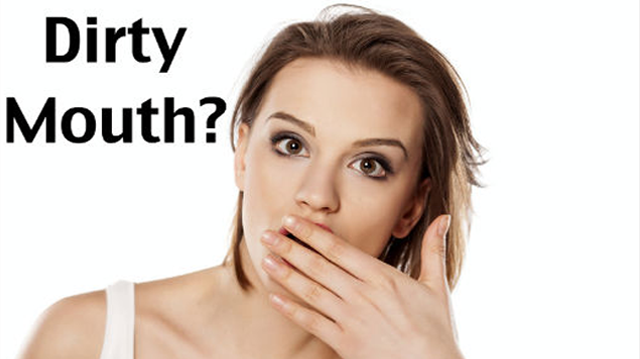
Potty seats get a bad rap. No matter how clean they can be, people always think of them as a cesspool of germs. The truth is there are quite a few things that are actually dirtier than a toilet, including your mouth.
Potty Mouth
In a 2007 study and survey by the Hygiene Council, it was found that the average toilet bowl contained 3.2 million bacteria per square inch while the toilet seat contained only 295 bacteria per square inch.
According to recent promotional material from Orbit Gum, “It has been estimated that there are approximately 100 million microbes of bacteria for every milliliter of saliva (100,000,000 per ml) and anywhere from 400 to 600 different species.”
A Closer Look at The Bacterial Flora of The Oral Cavity
 Other sources say the average mouth plays host to as many as 1,000 different kinds of bacteria, up to 80 various kinds of fungi, as well as a random amount of parasites and viruses. In a study by the Forsyth Institute, in collaboration with the University of Oslo, Norway, and the Harvard School of Dental Medicine in Boston, it was found that more than 700 bacterial species were detectable in the average mouth.
Other sources say the average mouth plays host to as many as 1,000 different kinds of bacteria, up to 80 various kinds of fungi, as well as a random amount of parasites and viruses. In a study by the Forsyth Institute, in collaboration with the University of Oslo, Norway, and the Harvard School of Dental Medicine in Boston, it was found that more than 700 bacterial species were detectable in the average mouth.
During the study, researchers identified 13 new bacterial species and found that most sites in the mouth possessed between 20 and 30 different predominant species. Samples were taken from over nine sites within the mouth, and the number of predominant bacterial species from all those sites ranged between 34 and 72 depending on the individual subject.
While there are good bacteria in the mouth, there are also potentially hazardous species as well. Some oral bacterial species have been linked to systemic diseases such as aspiration pneumonia, bacterial endocarditis, preterm low birth weight, osteomyelitis in children, and cardiovascular disease.
What Is Living Inside Your Mouth
The most commonly found bacteria in anyone’s mouth are:
· Staphylococcus epidermidis and Staphylococcus aureus. These bacteria are normally not a problem but can cause infection in some cases, such as people with reduced immune function.
· Streptococcus. There are several strains of Streptococcus that reside in the mouth. In particular, Streptococcus mutans can cause infections as well as cavities. This bacteria transforms sugar into lactic acid that dissolves tooth enamel.
· Lactobacillus. These bacteria transform lactose into lactic acid that can also cause cavities and tooth decay.
· E. Coli. Although this bacteria is usually prevalent in the intestines, there is a small number found in the mouth, and it could function as a potential pathogen.
Practicing Good Oral Health
Fortunately, most of the bacteria in your mouth, (and other places in your body), are the “good guys” that help you to fight off and destroy harmful bacteria. All the same, you don’t want your percentages of bacteria to get out of whack, or you could end up with infections and other problems.
A great way to protect your oral health and decrease the bad bacteria in your mouth is through oil pulling. Rather than investing in expensive commercial products, simply use a teaspoon of coconut oil first thing in the morning. Swirl it around in your mouth for 10–20 minutes and then spit it out. The benefits of oil pulling include a decrease in tooth decay, treatment and prevention of gingivitis, and freshened breath.
-The Alternative Daily
Sources:
http://thehigherlearning.com/2014/07/03/message-from-orbit-gum-your-mouth-is-dirtier-than-a-toilet-seat
http://www.livestrong.com/article/161300-what-are-the-different-types-of-bacteria-found-in-the-human-mouth
http://www.ncbi.nlm.nih.gov/pmc/articles/PMC1287824
http://www.thealternativedaily.com/three-ways-coconut-oil-can-improve-oral-health

